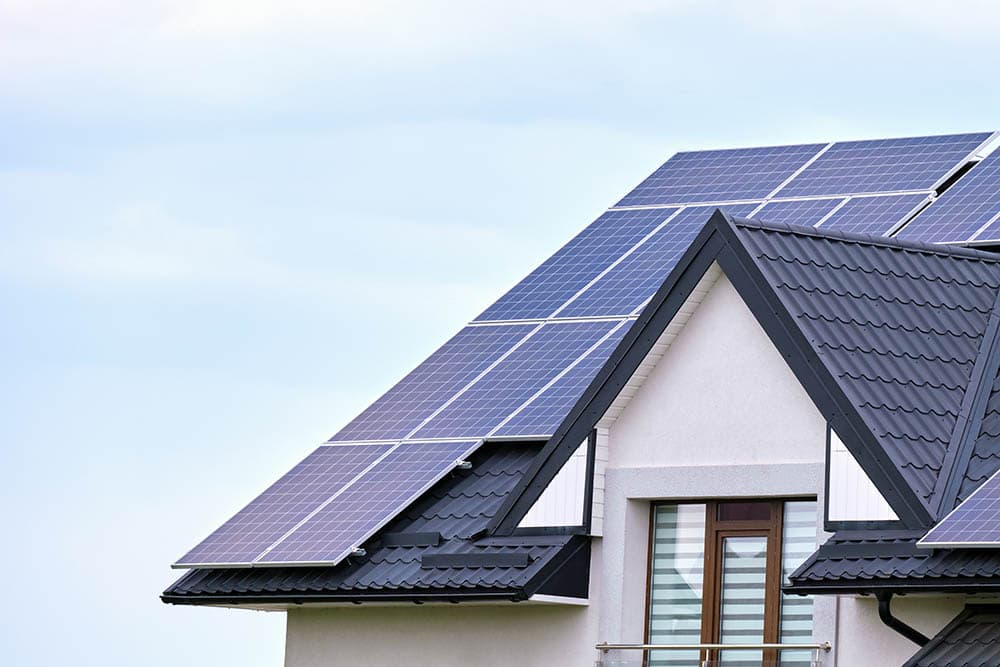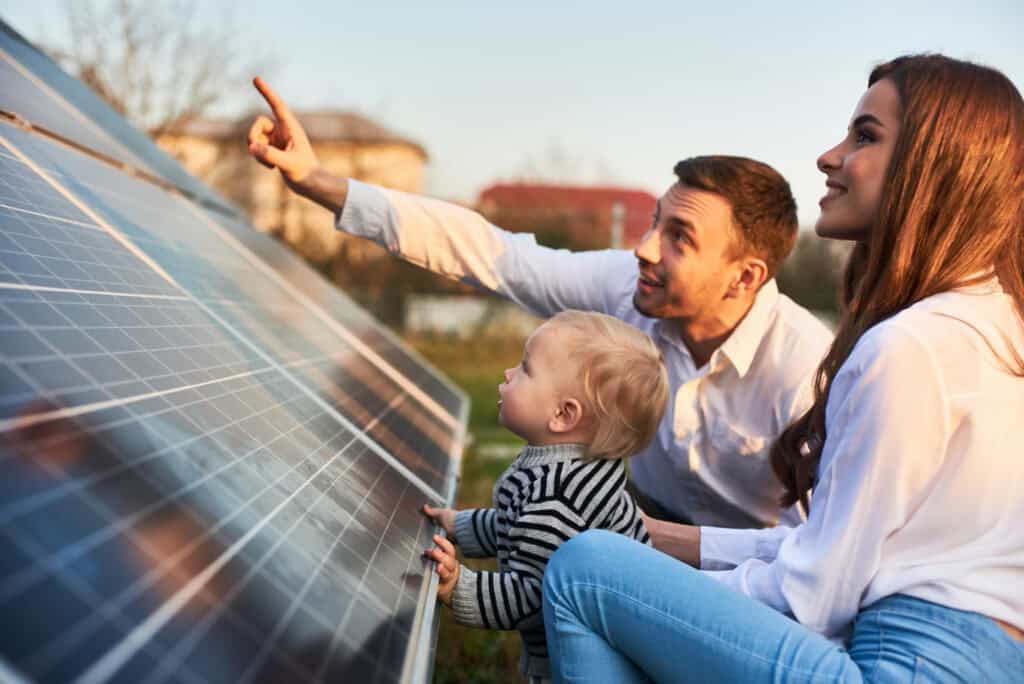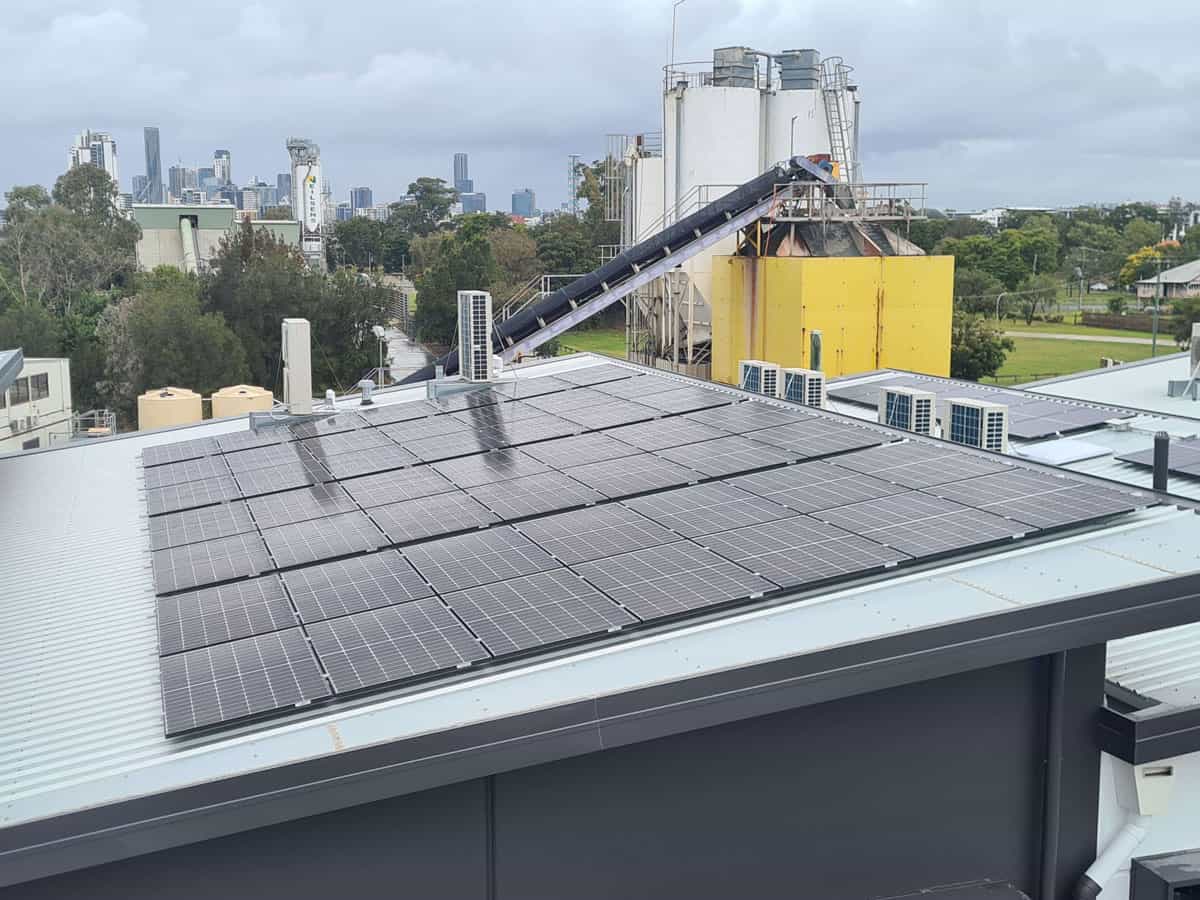If you’ve ever asked thought to yourself “How many solar panels do I need? ” to power your home, then you’ve come to the right place. At 3D Energy, as a leading supplier and installer of electrical and solar power systems, batteries and storage in Brisbane and South East Queensland, we get asked this question a lot. Whether you’re looking for the answer because you’re looking at installing solar panels and a solar power system in your home, or you’re simply curious, you’ll get the answers you’re looking for in this article.
"So", you ask, "how many solar panels do I need?"
Unfortunately, it’s not a one-word answer (unless you get a quote from one of our specialists – they can do all the calculations and just tell you the one-word version of how many panels you need for your expected electricity usage and building specifics).
But don’t be disheartened if you’re playing along at home – we’ll still help you find the answer, right here in this article. It just takes a bit more than punching it into a ‘how many solar panels do I need calculator’.
Let’s take a look at everything you need to know to accurately calculate how much solar power you’ll need for your home or facility, and the number of solar panels you’ll need to generate that power. To do that, we start with the essential factors that will influence this calculation, then we’ll go into detail on what those look like for different solar panel requirements and home energy consumption requirements.

The elements that determine how many solar panels you need to power a house
Answering the question, “How many solar panels do I need?” requires considering your:
- Home’s recent energy usage
- Anticipated energy usage and electricity needs
- Changes you could make to your energy usage
- Climate and weather conditions
- Sunlight and orientation
- Goals (how many solar panels to power a house, or run a house in off-grid mode?)
- Solar power system preferences (for functionality)
- Solar panel size and solar system size
- Solar panel efficiency
- Solar panel wattage
- Number of phases connected to the house
Let’s take a closer look at each of these factors that determine how many solar panels are needed to power a house.
Looking for a hard and fast answer and don’t mind if it’s a general idea (prefer fast over accurate?) You can also contact us for a quick solar quote tailored to you.
Recent and anticipated energy usage and needs
While we have some calculation guides below for the electricity usage of the average household, the best way to get an accurate measure of how much energy you’ll need to generate with your solar panels is to take a look at your actual energy usage requirements.
The best way to do this is to look at your recent electricity bill from your electricity provider, or ideally, several of your recent bills. You can see on your bill how much energy you used for the period, and this can give you a fair idea of how much energy output your family members currently use.
The lower your power consumption, the smaller the solar system size and fewer solar panels you’ll need to generate the amount of energy required.
Anticipate you usage within the year
Be sure to anticipate your energy usage and how that may fluctuate within a year and in the years to come, however, when you make your calculations. For example, the following factors could grow your electricity bill.
- More people living in your household (so if you’re expanding your family or likely to have the in-laws move in, your energy production needs may grow).
- The addition of high power consumption features or facilities (if you’re looking at adding a lot more electrical appliances to your home since your last energy bill, or something like air conditioning, sound and lighting, entertainment features, EV charging, pool heating or even a large fish tank, this can increase your power consumption).
- Changes in season (for example, if your latest electricity bill was in winter, and you don’t typically run heating in winter but run plenty of air conditioning in summer, your summer electricity usage is likely to be higher).
Once you’ve used your recent energy bill/s to discover your average recent energy consumption, and taken a look at whether this is likely to grow or drop in the future, you’ll have a pretty good idea of your energy production requirements for your solar panels to generate; and this will tell you how many panels you need to know (once you know the panels wattage and details too).
Changes you could make to your energy usage
It could be that you don’t have a huge amount of roof space and are considering solar (but trying to figure out if it will generate enough energy for your needs). Or, maybe you are simply trying to see the minimum amount of solar panels you’ll need, to keep your solar system within budget. Either way, it’s worth considering if there are any changes you could make to your energy usage.
Make hay when the sun is shining
When you have solar power, the most effective use of power is when the sun is shining. You might want to consider ways you could make changes to your energy usage to best maximise solar panels (and therefore reduce how many solar panels you’ll need to power your home).
For example:
- Running the dishwasher and/or washing machine during daylight whenever possible
- Keeping lights and powerpoints switched off when not in use
- Air drying, rather than machine drying clothes
Any other energy usage habits you could work on. Remember, the number of solar panels depends largely on how much power you use and need. More solar panels (or at least more energy dense solar panels) are needed for higher electricity requirements.
Homes with higher night-time usage might need more panels, especially if they plan to store solar energy in batteries.
Solar power system preferences
- Do you want a solar panel system with solar panels only, that feeds excess power back into the grid?
- Do you want a solar power system, complete with the perks that solar batteries give you? (The ability to store excess solar energy generated to use later and also for backup functionality).This is called a hybrid system, as it involves a solar battery where the battery is charged first along with supplying household loads and your excess solar energy then goes back into the grid after your battery is fully charged to be used later.
What if I don’t have a battery?
If you’re just after a standard solar system, without a battery, the straightforward calculations will work. If you do want these options though, the details of the system you require will need an expert’s opinion, as how much solar energy and how many panels you need can vary depending on the system requirements for the features you’d like. In this case, it’s best to chat to a solar power expert. If you’re based in Brisbane or South East Queensland, we’re always happy to provide you with a quote, or advice at 3D Energy. Get in touch with our friendly team today.Solar panel size and solar system size, efficiency and wattage
Not all solar panels are created equal, and neither are all solar systems. A solar calculator can give you a good idea based on standard sized panels, but the panel’s wattage, size, and the solar system size, shading will have an impact too on how many you need.
Panel efficiency also plays a key role in your solar setup and how many solar panels are needed to power a home. While more efficient panels may have a higher upfront cost, their ability to convert sunlight into electricity more effectively means you could need fewer panels. This efficiency is crucial for maximising your energy production.

Climate and weather conditions, sunlight & orientation
Goals
Hard & fast answers: here are the general household averages, if you're looking for a ballpark figure
How many solar panels are needed for standard house power requirements in Australia (loose averages)
In Australia, the number of solar panels needed for a standard house varies based on the size of the house and its typical energy usage, and all of the other factors we covered above. If you’re looking for an accurate answer to how many solar panels you need to power your home, we do recommend figuring it out based on the above pointers. However, these averages provide a quick idea based on standard energy assumptions and requirements, for standard solar systems.
Average solar needs for various house sizes
2-Bedroom home (standard sizes):
- Average yearly energy usage: Approximately 3,800 kWh.
- Typical system size needed: Around 3 kW to 4 kW.
Number of solar panels: Assuming each panel is 440W, approximately 7 to 9 panels are needed.
3-Bedroom home (standard sizes):
- Average yearly energy usage: Roughly 4,900 kWh.
- Typical system size needed: Generally, a 4 kW to 6 kW system is sufficient.
Number of solar panels: With 440W panels, this translates to about 10 to 14 panels.
4-Bedroom home (standard sizes):
- Average yearly energy usage: Around 7,000 kWh.
- Typical system size needed: A 6 kW to 8 kW solar system is often adequate.
- Number of solar panels: This means needing approximately 14 to 18 panels of 440W each.
Keep in mind, how many solar panel you need will likely vary from these averages
It’s important to remember these figures are averages. The actual number of solar panels needed can vary based on specific household energy usage patterns, the presence of shade, roof size, and the type of solar panels used, and a whole range of other details. For example, higher efficiency panels can generate more electricity in a smaller space. So, fewer high-efficiency panels might be required compared to standard panels in those situations.
DIY calculator: how many solar panels do I need calculator
If you have taken a look at your recent electricity bills and have used that to calculate your average electricity requirements (and anticipated future energy requirements) based on our recommendations above, you can use that number to calculate your estimated numbers for how many solar panels are needed to power your home, using the figures above. (Keeping in mind these numbers are also based on standard solar panels, and other averages).
If you get stuck though, our team is always happy to provide you with an accurate solar quote. Just get in touch with the team at 3D Energy today.


